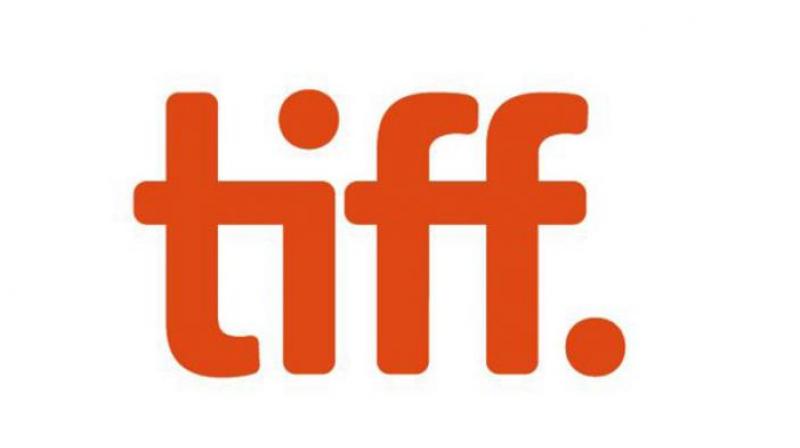Films that are happy travellers, others that aren't
The ability to travel isn't always, but it often is a comment on a film's quality, and a nation's cinema.

Toronto: Some movies are naturally peripatetic, and it doesn’t take much effort for them to go places. Some acquire lucky feet because of their marquee stars, or director.
And then there are movies that are fixed, stationary. Films that will simply not budge from their place of origin no matter how hard you try. The ability to travel isn’t always, but it often is a comment on a film’s quality, and a nation’s cinema.
It’s like winning the state and national levels, and then qualifying for world championships. Or not.
In films, the four big international film festivals Cannes, Venice, Berlin and Toronto are like the qualifier rounds for Golden Globe and the Oscars. And Giovanna Fulvi, Toronto International Film Festival’s (Tiff) programmer for Asian cinema (except for films from India and the Philippines), thinks it’s the stories that help films transcend boundaries.
“There are some stories that have a universal appeal, no matter where they are set. But the more that story is culture specific, the more interesting it becomes,” she says. Chinese directors and producers, says Fulvi, are only just beginning to focus on films that will have an appeal in the international market. And yet, of the 17 films she has brought to Tiff 2018, eight are from China.
The line-up from India is seven and includes Anurag Kashyap’s Manmarziyaan (Husband Material), Nandita Das’ Manto, Vasan Bala’s Mard Ko Dard Nahin Hota starring Bhagyashree’ son Abhimanyu Dasani, National Award winner Rima Das’ Bulbul Can Sing, Ritu Sarin and Tenzing Sonam’s The Sweet Requiem, Anant Patwardhan’s four-and-a-half hour long documentary Reason (Vivek), and two short films Jayisha Patel’s Circle, and Sandhya Suri’s The Field. The list reads like the who’s who of India’s indie cinema.
Apart from a few Aamir Khan films, India’s commercial cinema, still rooted in the collective delusion of Indians, seems to be an uneasy traveller. It just makes short trips to lands with a sizeable population of non-resident Indians who are even more invested in the grand Indian delusion of duty, honour and the family.
Some Indian stories are powerful enough to invite the attention of foreign directors, and often these travel far and well with white men, not always for the quality, though.
Salaam Bombay, Gandhi, but also Slumdog Millionaire, and now Hotel Mumbai.
Directed by American-Australian Anthony Maras, Hotel Mumbai tells the story of the 26/11 terrorist attacks in Mumbai in 2008 that devastated an entire nation not just because 10 young boys, armed with automatic rifles and some dry fruit, fanned out into the city to kill indiscriminately, but also because they did so with little resistance from the security forces for hours.
As the film’s title suggests, Hotel Mumbai’s focus is on the siege of the Taj Mahal Hotel that lasted almost 62 hours. The film, starring Dev Patel, Armie Hammer, Nazanin Boniadi and Anupam Kher, is a heart-felt salute to the staff of the Taj Mahal Hotel who showed extraordinary courage and commitment to their job by choosing to stay with the guests when they could have left.
The screenplay, written by John Collee (Master and Commander, Happy Feet), carefully avoids the subcontinent’s politically sensitive issues Pakistanis being the handlers is suggested, but never mentioned — uses real facts of the terrorists’ attack like a thriller stalking several fictional characters. There’s an heiress, her husband, toddler and nanny who are staying at the hotel; a Russian creep who was planning an orgy; a poor Indian waiter whose wife waits for him in a slum cliched characters ready-made for the Western palate.
The film, which uses some real television footage to its advantage, is able to create gripping drama, often in a style that’s too Bollywood, when it is focused on the four terrorists who ruthlessly and meticulously swept through the entire hotel, knocking on doors pretending to be room service, to kill while taking instructions on the phone from their handlers in Pakistan.
For those of us who watched this mayhem live on television in November 2008, one fact stood out that we will neither forget nor forgive. After the terrorists fired the first bullet, it took eight hours for the special forces to land in Mumbai from Delhi. And then they took a bus from the airport to reach Chabad House and The Taj.
Though the film is quite diplomatic and doesn’t indict Bharat sarkar, there is a constant reminder at the bottom of the screen that the special forces are yet to arrive from Delhi. That fact is, at times, more chilling than the expressionless faces of young men who don’t flinch while shooting, as if they are spraying bullets in a video game.
The banality of evil makes your bones go cold. As does the apathy of the state.
Hotel Mumbai will travel well internationally, and may even get a nod or two from Oscars in the direction and screenplay category. But the film is sure to make Indian audience uneasy, especially those bits when the film tries to create light moments between the terrorists.
During the film’s world premiere at Tiff 2018, many laughed. If and when Hotel Mumbai plays in Indian theatres, these jokes will be met with solemn silence.
Some Indian stories, when they travel back to India, need to pack in a little sensitivity to get a warm hug.

